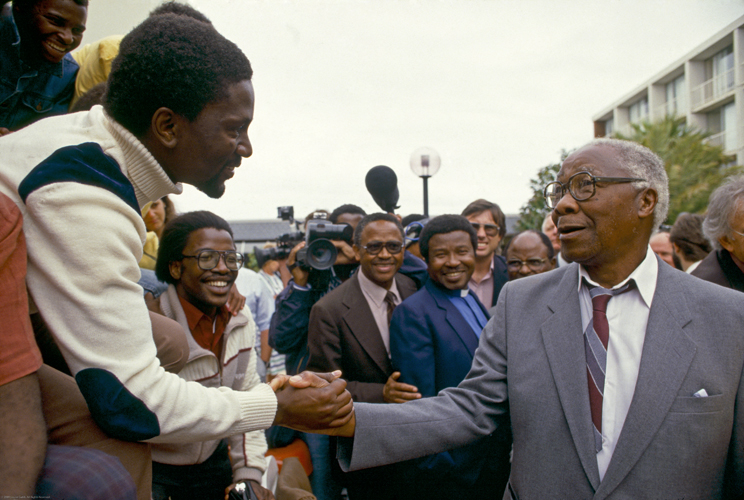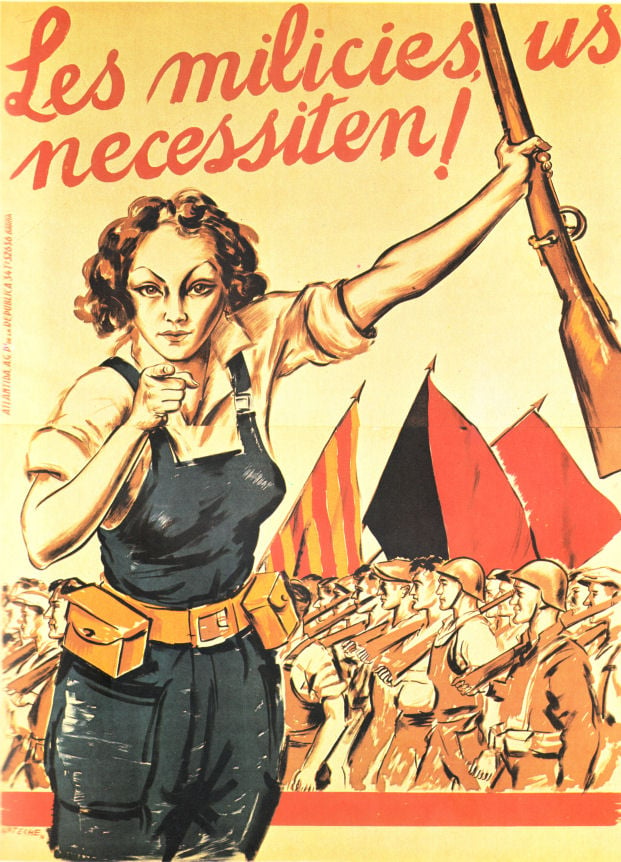- cross-posted to:
- workingclasscalendar
stahmaxffcqankienulh.supabase.co
- cross-posted to:
- workingclasscalendar
Govan Mbeki (1910 - 2001)
Sat Jul 09, 1910

Image: Rivonia trialist and African National Congress (ANC) leader Govan Mbeki, who spent 23 years in jail on Robben Island with Nelson Mandela, greets supporters and well-wishers on his first full day of release into freedom, Port Elizabeth, South Africa, November 6th, 1987.
Govan Mbeki, born on this day in 1910, was a communist journalist and South African revolutionary. He was imprisoned by the apartheid government for more than 24 years, and served in the post-apartheid government from 1994 to 1999.
Govan Mbeki was born in the Nqamakwe district of the Transkei region of South Africa, and was a member of the Xhosa ethnic group. As a teenager, Mbeki worked as a newsboy and messenger in the cities, where he witnessed urban black poverty and police repression.
Starting in the 1930s, Mbeki began to serve in a variety of radical organizations - the South African Communist Party, the African National Congress (ANC), and worked as the editor of the black-owned newspaper Inkundla Ya Bantu.
Mbeki left journalism in 1944 and became a government-nominated member of the Transkei Territorial Authorities General Council, serving until 1950. Mbeki disparagingly referred to the council as a “toy telephone”, stating “You can say what you like, but your words have no effect because the wires are not connected to an exchange”.
In 1960, the apartheid state banned the ANC. In response, the ANC and the already-banned Communist Party formed a paramilitary, Umkhonto we Sizwe (MK). Mbeki was involved with MK and helped the group build explosives.
In July 1963, Mbeki was arrested along with several other MK leaders, including Walter Sisulu. After the subsequent “Rivonia Trial”, Mbeki began a 24-year prison sentence Robben Island, during which he managed to run education classes with prisoners and author several texts, including The Peasants Revolt, “a major historical study of peasant struggles in Pondoland and Sekhukhuneland” according to South African History Online.
On November 5th, 1987, Mbeki was released from prison. He went on to serve in South Africa’s post-apartheid Senate from 1994 to 1997 as Deputy President of the Senate, and then the Senate’s successor, the National Council of Provinces, from 1997 to 1999.
“Our experience over the last 20 years has shown that indeed people must themselves become their own liberators. You cannot wait for somebody else to come and rescue you.”
- Govan Mbeki
- Date: 1910-07-09
- Learn More: aaregistry.org, www.sahistory.org.za.
- Tags: #Communism, #Marxism, #Civil Rights, #Birthdays.
- Source: www.apeoplescalendar.org

